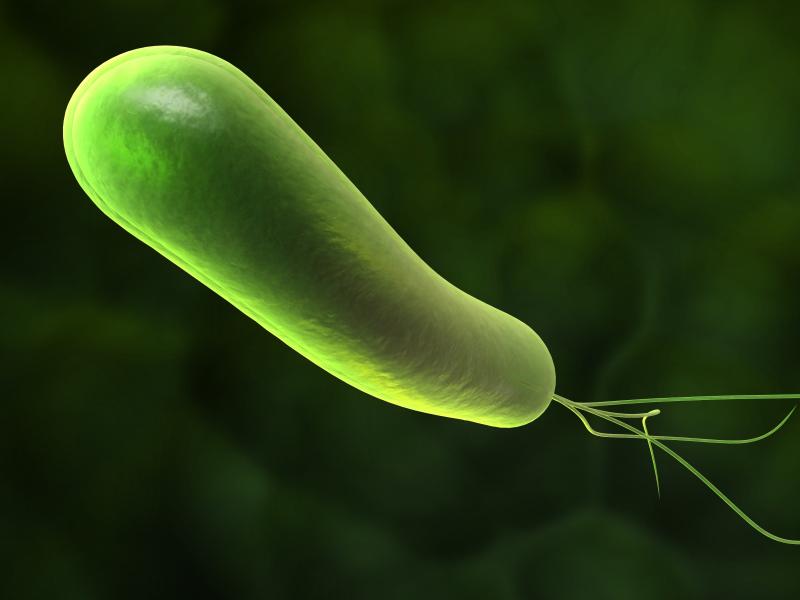
The novel rifabutin-based triple therapy (RHB-105) delivers promising outcomes as first-line empirical treatment for Helicobacter pylori eradication, according to the results of a phase III, double blind trial. This therapy addresses the challenge of rising antibiotic resistance in the current environment.
This trial included 455 treatment-naïve adults with epigastric discomfort and confirmed H. pylori infection in 55 clinical research sites in the US. Participants were randomized to receive RHB-105 (amoxicillin 3 g; omeprazole 120 mg; rifabutin 150 mg) or an active comparator (amoxicillin 3 g and omeprazole 120 mg), given as four capsules every 8 hours for 14 days.
The investigators used the χ2 test to analyse between-group difference for H. pylori eradication rate, as demonstrated by 13C urea breath test 4 weeks after treatment.
The intention-to-treat analysis revealed a higher eradication rate with RHB-105 (n=228; 83.8 percent, 95 percent confidence interval [CI], 78.4–88.0 percent) than with the active comparator (n=227; 57.7 percent, 95 percent CI, 51.2–64.0 percent; p<0.001).
Resistance to clarithromycin or metronidazole did not affect the eradication rates. In addition, no resistance to rifabutin was observed.
Adverse events that were commonly reported for the two therapies were as follows: diarrhoea (RHB-105 vs active comparator: 10.1 percent vs 7.9 percent), headache (7.5 percent vs 7 percent) and nausea (4.8 percent vs 5.3 percent).
This study was limited by its exclusion of patients of Asian descent due to their higher prevalence of poor cytochrome P450 2C19 metabolizers, according to the investigators.